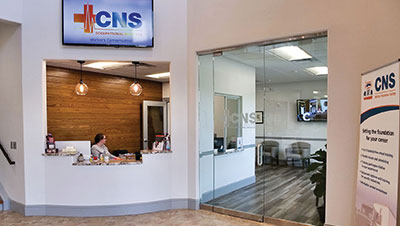Heavy metals testing is used to screen for or diagnose heavy metal poisoning in those who may have been exposed to one or more heavy metals, such as lead, zinc, mercury, chromium, and cadmium.
Regular heavy metal testing can also help monitor excessive metal concentrations in those who work with various heavy metals.
Occupations where employees are often exposed to heavy metals include:
- construction work
- mining
- manufacturing of nails, insulated wires and cables, steel piping, and copper and aluminum products
- radiator repair shops, and
- firing ranges
A worker’s exposure to hazardous materials on the job can be unknowingly brought back to a person’s home. Heavy metals such as lead dust, concrete-crusted clothing, and a variety of oils, greases, and solvents can all unintentionally poison the employee and/or their family.
What are the health risks around heavy metals?
Heavy metal exposure can affect individuals in different ways, such as damage to the eyes, nose, throat and skin, difficulty breathing, chest and joint pain, nausea, and headaches.
Those who have underlying health conditions may be even more vulnerable.
Your health care provider may order a heavy metal blood test if you have symptoms of heavy metal poisoning.
Employers have the responsibility to protect the safety and health of the worker by having a safety policy in place.
Additionally, the Centers for Disease Control and Prevention (CDC) note that this test should be essential for “all refugee children who are 6 months to 16 years of age upon entering the United States” and those who have lived in an older building in poor repair.
What heavy metals are commonly tested for around employee health?
Lead: Occupational exposure to lead is one of the most prevalent overexposures. OSHA requires lead levels to be monitored for those that have frequent exposure to lead.
Industries with high potential exposure include:
- construction work
- smelter operations
- radiator repair shops
- painters, and
- firing ranges
Zinc: Large amounts of zinc can cause:
- nausea
- vomiting
- loss of appetite
- stomach cramps
- diarrhea, and
- headaches
Mercury: Common sources of mercury exposure include the mining, production, and transportation of mercury, as well as mining and refining of gold and silver ores. High mercury exposure results in permanent nervous system and kidney damage.
Cadmium: Cadmium is a very toxic metal commonly found in industrial workplaces, particularly where any ore is being processed or smelted.
Chromium: Chromium, a brittle metal, can be toxic in greater amounts and is recognized as a human carcinogen.
What to expect during a heavy metal test
A quick blood draw can be used to test for various heavy metals. The four most common tests include:
- Lead (Pb)
- Zinc Protoporphyrin (ZPP)
- Lead Standard Profile including ZPP
- Heavy Metals Profile
A person may find it is necessary to avoid eating certain fish or shellfish before taking a heavy metal test. This is because they can contain high levels of mercury.
If your heavy metal blood test shows a high level of metal, you will need to completely avoid exposure to that metal to mitigate short-term and long-term health risks.
Regular blood tests can be used to confirm that the heavy metal in your blood is being reduced or not.
If your levels of heavy metal are low, but you still have symptoms of exposure, your health care provider will likely order additional tests, like a urine analysis, as heavy metals do not stay in the bloodstream very long.
Our Occupational Medicine Specialists can help with questions you have or help you schedule a test. For more information, contact us at 800.551.9816 or info@cnsoccmed.com.










